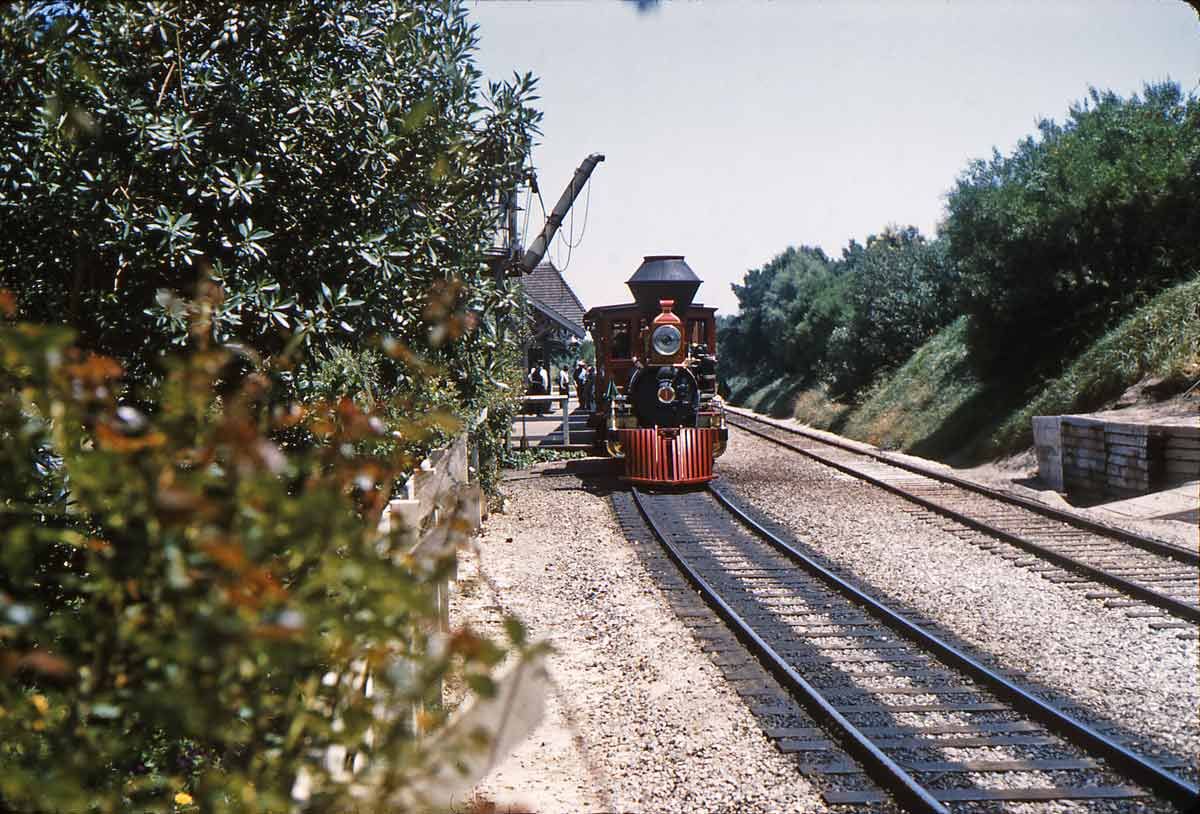The pilot deck is cut out from styrene sheet using a pattern from the plan.

(By the way, if you have the plan book, you might notice that there’s no drawing of the pilot deck. If you want this drawing for study or your own project, you can grab the plan book’s addendum here).
A long strip of styrene wraps around the edge of the deck to form the apron. Here’s the underside. I signed my name with a little drawing of a boat I sailed on, the Lady Washington. This is just one of the many Easter Eggs scattered throughout the model!

Here’s the deck fitted in its place.

The smokebox braces are added and the entire front details painted gloss black. The circular flanges have three “bolts” instead of five like it should because I couldn’t fashion bolts small enough to fit on the flange. Now I know I should have pressed the flange with metal point to create false revit. I use this technique later on the boiler apron.

Next, the cab’s window frames are drawn on a styrene sheet. Each window gets two frames, one inside (painted green), one outside (painted red), and of course the glazing pane in the middle.

In all, there are eight windows, four of which are operable by the cab crew (but not here).
After much tedious cutting and painting later, the windows are fixed into the freshly painted cab.
True to Disneyland Railroad’s tradition, I left all the operable windows opened. The cab crew needs all the ventilations they can get in the cramped space so you’ll rarely see the windows closed.
I fixed the windows in at about 90% opened to give them a sense that they are operable.



Next in the engine finishes, the bell. I bought it from tracksidedetail and it is wonderfully detailed. It’s part number TD10 and the bell itself is slightly larger than what’s required, so the model would wear a 13″ bell instead of 12″ but this is not visually noticeable. The yoke, however, require minor modification.
Here’s the yoke, casted from brass, painted dark red.

And here’s the bell. It also comes with its own striker!

Ok. Earlier I mentioned the boiler apron. It also gets cut from styrene sheet. And as I said earlier, I used metal point to press into the sheet to create false revit pattern.

The cab looks pretty realistic with the windows opened up.

And finally, the front shot of the nearly completed model!



















































